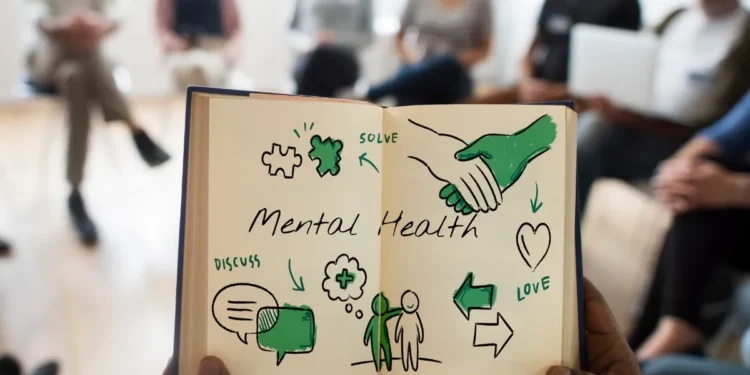Importance of mental health : The importance of mental health in today’s world cannot be overstated. Just as art movements represent the culture and imagination of their era, mental health reflects the well-being, struggles, and growth of individuals and societies. Mental health is not just about the absence of illness; it is about resilience, emotional balance, cognitive strength, and the ability to live life with purpose.
From how we think and feel to how we interact with others, our mental state influences every aspect of daily life. Much like the Renaissance reshaped art and culture, an awareness of mental health is reshaping how we view work, relationships, and community well-being. Understanding and nurturing mental health is not only a personal necessity but also a cultural movement—one that continues to shape the way we live today.
Why Is Mental Health Important?
Mental health, like fashion or art, is an expression of human condition. It reflects emotions, thoughts, and behaviors shaped by both personal experiences and societal influences. The importance of mental health lies in its ability to:
- Shape culture and behavior – Mental well-being influences creativity, productivity, and how communities function together.
- Break social barriers – Just as movements like Romanticism broke norms, awareness about mental health challenges stigma and encourages acceptance.
- Reflect innovation in self-care – Practices like meditation, therapy, and digital wellness tools are modern breakthroughs in the way we nurture our minds.
- Inspire generations – The conversation about mental health encourages younger generations to value emotional intelligence, empathy, and well-being.
When individuals focus on mental wellness, societies thrive with compassion, resilience, and collective strength.
Roots of Mental Health Awareness
Just like art movements, the concept of mental health has historical roots. Civilizations across the world understood the link between mind, body, and spirit long before modern psychology.
- Ancient Traditions – In India, Ayurveda and Yoga highlighted the harmony between body and mind. In China, Taoist practices emphasized balance and inner peace. Greek philosophers like Hippocrates studied the link between emotions and health.
- Medieval Misconceptions – Mental illness was often misunderstood, attributed to superstition or spiritual possession. This period mirrored a lack of compassion and awareness.
- Modern Science – The Renaissance of mental health began in the late 19th century with Sigmund Freud’s psychoanalysis and has evolved into today’s cognitive-behavioral therapy, neuroscience, and mindfulness practices.
These roots remind us that mental health in daily life is not a modern issue—it is a timeless human need.
Key Aspects of Mental Health
Just as art movements each brought unique perspectives, mental health has core elements that define its role in human life.
1. Emotional Well-being
Balancing joy, sadness, stress, and resilience is at the core of good mental health.
2. Cognitive Health
The ability to think clearly, make decisions, and process information reflects a healthy mind.
3. Social Connections
Healthy relationships and a sense of belonging protect against anxiety and depression.
4. Coping Skills
Managing stress and adapting to challenges demonstrates resilience and stability.
5. Physical Link
Mental health is interconnected with physical health—sleep, exercise, and nutrition all impact the mind.
Together, these aspects form the foundation of a healthy mind and body connection.
DIY Practices for Better Mental Health
Just as artists experiment with techniques, individuals can adopt simple strategies for improving mental health in daily life:
- Mindfulness Practice – Take 10 minutes daily to focus on breathing and awareness.
- Journaling – Writing down feelings reduces stress and clarifies thoughts.
- Physical Activity – Exercise releases endorphins, improving mood and energy.
- Digital Detox – Reducing screen time helps prevent burnout and overthinking.
- Gratitude Exercises – Listing three positive things each day strengthens optimism.
- Creative Expression – Drawing, music, or dance acts as therapy for emotions.
These mental wellness tips are small but powerful steps toward emotional balance.
Seasonal Influence on Mental Health
Just like art reflects seasons, mental health fluctuates with time and environment.
- Spring of Renewal – Energy, optimism, and creativity rise, symbolizing fresh starts.
- Summer of Vitality – Longer days often improve mood, but burnout can occur from overactivity.
- Autumn of Reflection – A period of introspection, sometimes linked to seasonal blues.
- Winter of Challenge – Shorter days and cold weather can trigger Seasonal Affective Disorder (SAD).
Recognizing these cycles allows individuals to adjust habits and maintain well-being.
Mental Health in Social Media & Pop Culture
In the digital era, mental health is trending as much as art movements once did.
- Instagram & TikTok – Hashtags like #MentalHealthAwareness and #SelfCare trend globally, breaking stigma.
- Movies & Music – Films and songs often highlight anxiety, depression, and recovery, opening public dialogue.
- Apps & Technology – Meditation apps like Calm and Headspace reflect innovation in wellness.
This digital wave shows how mental health has become part of mainstream culture.
Challenges and Misconceptions
Despite growing awareness, mental health faces significant challenges:
- Stigma – Many still view mental illness as weakness rather than a medical condition.
- Misunderstanding – People dismiss conditions like anxiety or depression as “overthinking.”
- Access to Care – Therapy and treatment remain costly and inaccessible in many areas.
- Cultural Gaps – Some cultures still resist open discussions about emotions.
Just as abstract art was once misunderstood, mental health struggles must be recognized as valid and deserving of empathy.
Also Read : Natural Beauty Tips Using Home Remedies/
Men & Women in Mental Health Movements
Historically, mental health experiences differ across genders:
- Women – More openly discussed issues such as postpartum depression and anxiety. Pioneers like Karen Horney redefined psychology with focus on female perspectives.
- Men – Often discouraged from expressing emotions due to societal expectations, leading to higher risks of untreated depression.
Today, the movement toward inclusivity ensures that both men and women receive equal recognition and support in mental wellness.
The Future of Mental Health
Just as art evolved with technology, the future of mental health will be shaped by innovation:
- AI in Therapy – Virtual assistants offering guided emotional support.
- Teletherapy – Accessible counseling sessions online.
- Neurotechnology – Brain scans helping detect early signs of disorders.
- Eco-therapy – Nature-based healing as a response to climate anxiety.
The movement is toward integration—mental health will be as essential as physical health in future healthcare systems.
Legacy and Influence
The importance of mental health has created lasting influence in education, healthcare, and culture.
- In Schools – Emotional intelligence is being taught alongside academics.
- In Workplaces – Employee wellness programs emphasize stress management.
- In Society – Public awareness campaigns normalize therapy and support.
Mental health movements, like famous art movements, remind us that human progress is not only scientific but also emotional and psychological.
FAQ – Quick Facts
Why is mental health important in daily life?
It influences how we think, feel, work, and build relationships, making it central to overall well-being.
What are the benefits of good mental health?
Better productivity, stronger relationships, emotional balance, and resilience against stress.
How can I improve my mental health at home?
Adopt simple habits like mindfulness, exercise, journaling, and gratitude practices.
What is the link between stress and mental health?
Chronic stress weakens emotional well-being, often leading to anxiety, depression, or burnout.
Can digital tools help with mental health?
Yes, meditation apps, therapy platforms, and online communities support emotional wellness.
Also Read : Famous Art Movements That Shaped History & Culture
Conclusion
The importance of mental health is not confined to medical journals or therapy sessions—it is a living, evolving force that shapes individuals and societies. Just as Renaissance painters transformed culture, today’s awareness of mental wellness is transforming how we live, work, and connect.
Mental health teaches us that strength lies not in perfection but in resilience, compassion, and balance. Whether it is dealing with stress, nurturing relationships, or finding meaning in life, mental health is the invisible brushstroke shaping the masterpiece of human existence.

















